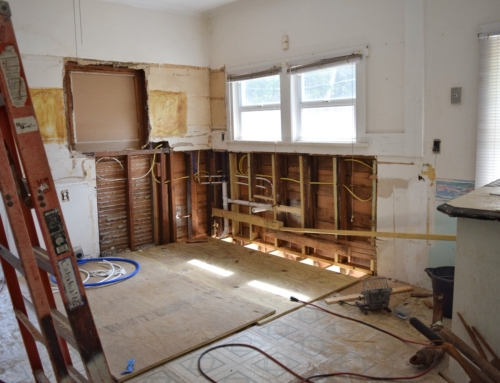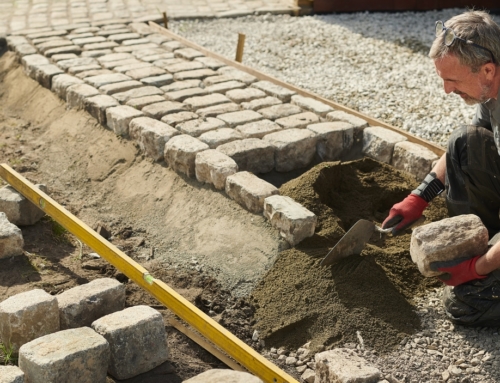You’ve worked hard all your life, saved and invested your money, and now is the time to start enjoying a more relaxed lifestyle and reap the rewards of your efforts. This begs the question, How to choose the right 55+ community?
If that describes you, you may be thinking about moving from a home you’ve lived in for decades and relocating to a retirement community with the amenities and lifestyle that meet your needs. There are a few factors to keep in mind to make sure you don’t end up unhappy or dissatisfied with your choice.
Making an actual list of what you expect in your new home is a good idea, defining everything you would like to help you feel content in your retirement. Often called “55+” communities, planned residential neighborhoods that offer amenities like a golf course and clubhouse, on-site restaurant, tennis and other activities for the active retiree are plentiful, so refining your wish list can be a critical component in making the right choice.
Home, Condo or Mobile Home?
The type of physical residence you decide on should be one of your primary decisions. Many people who have spent 20 or more years in the same single-family home up north may find the transition to a condominium or mobile home takes some time getting used to – and some find they do not like their choice at all and regret their decision.
If you’re moving from a 2,500 square foot home to a 900 square foot condo or mobile home, this would be a good time to get rid of your older items and furnish your new home with things that better fit the floorplan. Of course, your budget plays a key factor in the type of home you select. A 2-bedroom condominium may be a little pricier than a 2-bedroom mobile home in a private, gated development. And with the abundance of successful 55+ communities, particularly in Florida, you’ll have dozens of location choices in whatever area of the state you’d like to retire.
You may have an unfavorable stigma about living in a mobile home, but you’ll find today’s modern, “modular home” curb appeal and designs to be very attractive. While there are some communities that offer a home + lot purchase, most in Florida are structured so you buy the actual dwelling but lease the lot underneath it for a monthly fee. Some allow “for sale by owner” transactions just as in a traditional real estate sale, while others require that you purchase or sell a home only through their sales office. Be sure to gather all the facts so you can have all the information you need to make the right choice.

Senior people, friends, having fun, enjoying birthday party outdoors, toasting with champagne
Location is Key – Where Do I Want to Live?
Retiring and moving to another city far away from your family and friends can be difficult for some, so you need to think seriously about how you would handle that. Of course, the kids and grandkids can always come to visit – provided the 55+ community’s rules allow for visitors under a certain age. Yes, some do have restrictions, primarily to ensure a quiet, relaxed lifestyle for everyone who lives there. If you don’t want young kids splashing around the pool while you’re enjoying your morning swim, you should be sure to get a complete list of rules in any community you’re considering. You can read more on community rules in this article.
You should also determine how close you need to be to things like supermarkets, pharmacies, and other retail locations. If you prefer to live a bit more out in the country and don’t mind a 20-minute drive to buy food or pick up your prescriptions, a community outside of town may be fine for you. But if you’re the type who likes to zip over to Walmart often or enjoy a breakfast out with your neighbors, living a little closer to a commercial area may be a better fit.
How Much Activity Do You Want?
Different communities may offer different amenities and activities to pass the time in your retirement. It doesn’t make sense to pay for living in a golf community unless you play or plan on taking up the game. Most retirement communities have a wide array of available activities to suit just about any interest, so always ask for those before you decide to buy.
When you move into a new community with people in the same age range and in the same retirement situation, you’ll find there are many group activities that provide the opportunity to have fun and make new friends. Most have clubs formed by the residents for things like arts and crafts, quilting, games like pool or ping pong, exercise classes and many more. Many offer bus excursion trips to destinations like art museums or concerts where you can travel inexpensively with your neighbors.
In the end, it all comes down to just how active you’d like to be. Group activities aren’t for everyone, but if they interest you, make sure the availabilities are things you’re interested in.
Rules to Live By
Retiring to a 55+ community will likely mean residents are governed by a Homeowners Association, often called an HOA. This can be a surprise to someone who has lived in a home up north where there were no rules or restrictions.
Like allowing visiting kids or grandkids that we mentioned earlier, there are other things to consider, so be sure to read the full list of all community rules before you sign on the dotted line. Just like kids or people under the age of 55, pets can also be part of the rules and restrictions. If you have a large dog, for example, be sure to check if they’re allowed.
If you’re planning on traveling in your RV now that you’re retired, you’ll need to check if your new community has any available RV parking areas and how much they cost, if anything. Otherwise, storing your RV at a commercial storage site can be an added hassle and expense you hadn’t planned on. Even things like adding a new tree to your yard may be restricted by the HOA, or if you want to fly your favorite sports team’s colors from your garage flagpole, so be sure you know what you’re getting into.
As with any other life-changing decision, the more information you have, the more informed your decision. You may want to check into renting in a 55+ community for a short period, like 3 months during the winter season in Florida. That will allow you to really experience the pros and cons of life there before you commit to the move. Sadly, many people have made the transition and then found out they didn’t fully understand the lifestyle, amenities or what the HOA can and cannot do.
55+ communities can be extremely enjoyable neighborhoods that provide a rewarding quality of life for their residents, offering an active social life to experience with those who share your same interests.







Leave A Comment